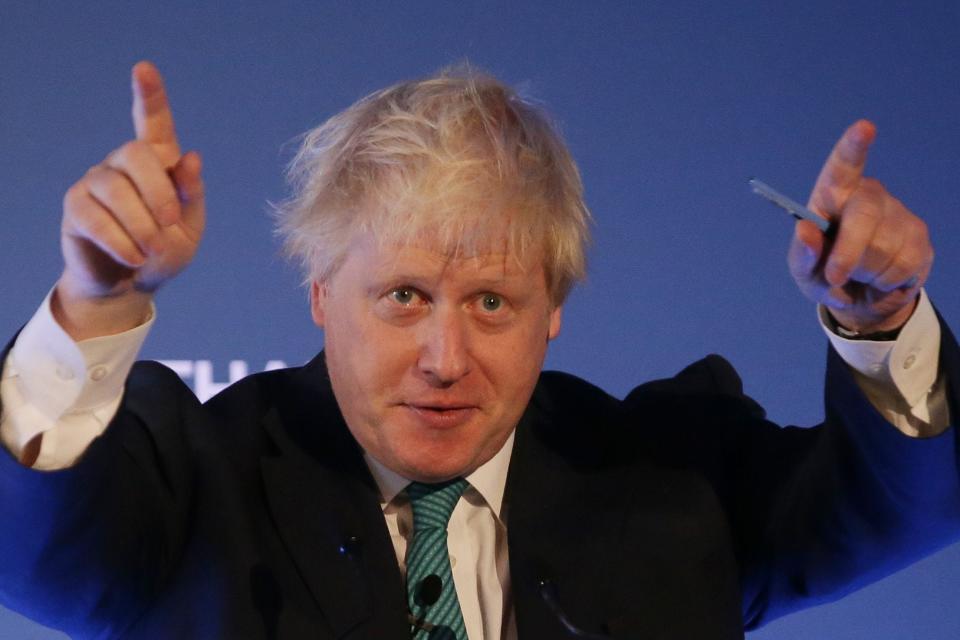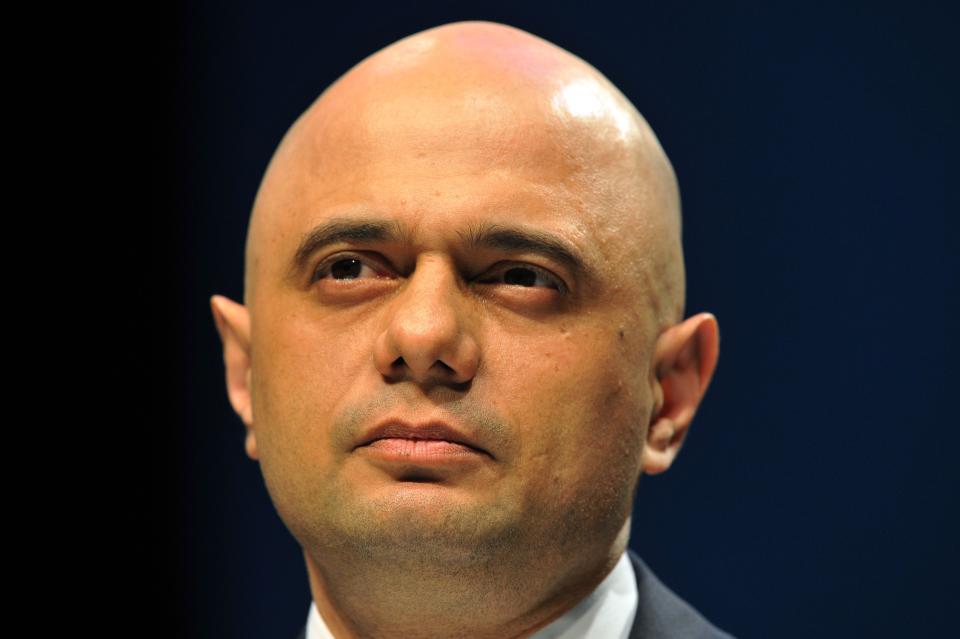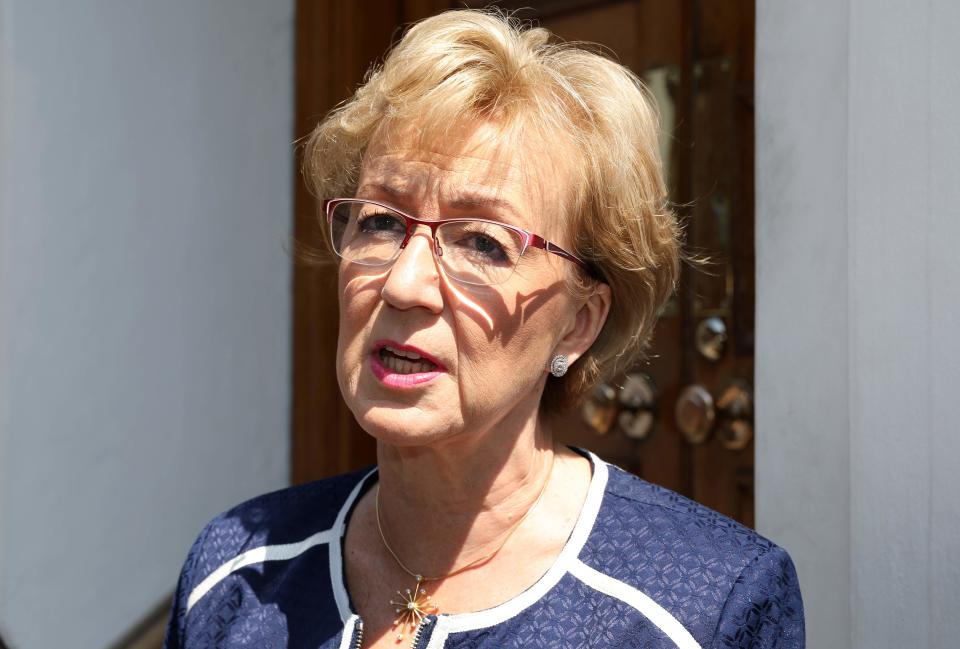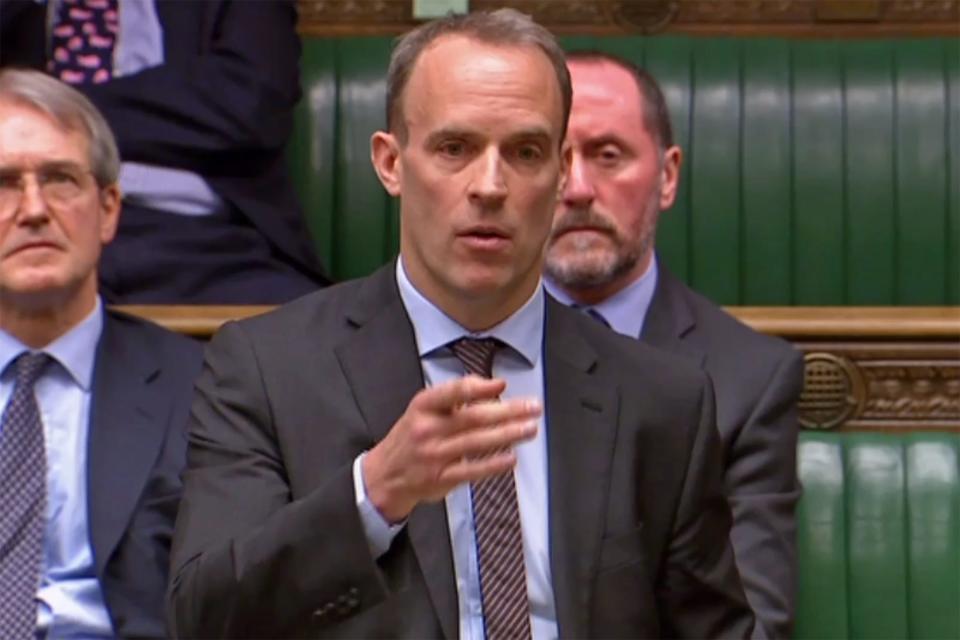Trump 'friend' Boris Johnson, who was born in the US, is the favorite to replace British Prime Minister Theresa May
LONDON – A U.S.-born British politician who once told USA TODAY in an interview that the chance of him becoming prime minister was about as likely as finding Elvis on Mars or being reincarnated as an olive, is the frontrunner to take over for outgoing British leader Theresa May, according to betting markets and opinion polls.
Boris Johnson was born in New York City to British parents, but renounced his U.S. citizenship in 2016 amid a taxes crackdown by the Internal Revenue Service on the global earnings of dual nationals. He last lived in the United States as a 5-year-old.
"Boris Johnson is a friend of mine. He has been very, very nice to me, very supportive," President Donald Trump said in July last year after Johnson resigned as May's foreign secretary over her handling of Britain's attempt to leave the European Union – Brexit.
Like Trump, Johnson appears to enjoy the limelight and attracts controversy. He was once forced into an apology to the nation of Papua New Guinea for comparing infighting in his Conservative Party to "Papua New Guinea-style orgies of cannibalism and chief-killing." He was fired as a journalist for making up a quote.
May's fraught three-year tenure in office will officially end June 7, she announced Friday. The 62-year-old Conservative Party leader was forced from power, but she will remain as a caretaker prime minister until party lawmakers and members vote to elect a successor. In Britain, the public elects a party, not a candidate, meaning the government stays the same for now, until there is an election. The process is expected to take about six weeks. First, Conservative Party lawmakers hold a series of votes to whittle the field to two candidates. Then, those candidates are voted on by party members across the country.
Theresa May: Britain's embattled leader resigns premiership amid Brexit deadlock
Experts say that whoever ends up as Britain's next leader won't dramatically rewrite one of the closest diplomatic, economic and military alliances in history: The "special relationship" between the U.S. and Britain, a phrase and diplomatic modus operandi coined by former British Prime Minister Winston Churchill in 1946.
British-American goodwill has accrued through two world wars, the Cold War, several conflicts in the Middle East and close cooperation in fighting international terrorism. Often, it's said, the two nations are divided only by a common language.
Trump has described his relationship with May as the "highest level of special," but the two leaders did clash on the substance of policy – his Muslim travel ban, in particular –and the new partnership is not expected to be all plain sailing and photo ops, either.
"The special relationship hasn't been so special recently," said Tim Bale, a politics professor at Queen Mary, University of London.
"Partly because the president couldn't stop himself criticizing the way May had gone about Brexit, and partly because she and other British politicians have been a little wary about associating themselves too closely with a guy who most Brits (rightly or wrongly) treat as either downright dangerous or a laughingstock, or both. Whoever takes over won't be looking for a full-on (b)romance."
Richard Whitman, a professor of politics at the University of Kent, said the "chemistry between May and Trump was awkward." But he said Johnson-Trump would be different, calling it a "clash for the title of the greatest showman."
Meet the main contenders

Boris Johnson
Johnson, 54, is the bookmakers' favorite to succeed May. He is a direct descendant of King George II — his full name is Alexander Boris de Pfeffel Johnson — and he has passed through many hallowed corridors of the British establishment. There was Eton College and the University of Oxford, where he was in the same classes as former British Prime Minister David Cameron. In addition to foreign secretary, Johnson has been London's mayor. He also was a journalist, editing The Spectator, a longstanding political magazine. Johnson is a leading supporter of Brexit. He has spoken of his admiration for Trump on several occasions, although when mayor he also said the U.S. president was "clearly out of his mind." Johnson is well-known in Britain for his tussled blonde hair and frequent classical allusions in speeches. One in four Britons think he would make a good prime minister, according to a survey by YouGov, a research firm.
Michael Gove
Another prominent supporter of Britain leaving the EU, Gove, 51, is currently minister for the environment. He had a cabinet-level role in Cameron's government and he is viewed as a seasoned operator with extremely good debating skills. (While at Oxford, Gove was president of the debating society.) Like Johnson, Gove is also a former journalist and he made headlines in Britain when he secured the first interview with Trump for a British publication after his election in 2016. Gove boasted in that interview for the Times of London that he spent an hour with the president-elect in his "glitzy, golden man cave" in Trump Tower, in New York City. Trump told Gove that Britain was "smart to leave the EU." Gove predicted Trump would resign or lose the 2020 election. If he ends up as Trump's new British counterpart, some of his comments out of the interview may come back to haunt him: "He is someone who is clearly narcissistic or egotistical enough to want to be seen as a success," Gove said of Trump.

Sajid Javid
Javid, 49, has held various cabinet-level positions in Conservative Party governments, most recently as home secretary, or interior minister. He is the son of a former bus driver from Pakistan and represents the relatively new face of British conservatism. Javid voted to stay in the EU in the referendum but has since campaigned aggressively for Britain to abide by the vote's outcome, and leave. He is known for taking a hard line on immigration and has been a fiercely vocal opponent of letting the wives and children of former Islamic State group fighters return to Britain. In one example, that of Shamima Begun, who fled to Syria's battlefields at 15, Javid is trying to revoke her citizenship in a case that mirrors that of New Jersey-born Hoda Muthana. The Trump administration is trying to block Muthana's return in a Washington court.

Andrea Leadsom
Leadsom, 56, was the last candidate standing against May in the 2016 race to succeed Cameron. She resigned Wednesday as leader of the House of Commons – a job responsible for arranging the order of government business in Britain's Parliament – in protest at May's then-refusal to step aside over Brexit. Leadsom is an ardent backer of Brexit but she stumbled during the leadership contest with May three years ago after she implied in an interview with a British newspaper that she thought she would make a better prime minister than May because being a mother gave her an "advantage" over the childless May. "I have children who are going to have children who will directly be part of what happens next," Leadsom said in the BBC interview. Leadsom also appeared to inflate her experience working in financial services.

Dominic Raab
Raab, 45, worked for an international law firm that litigated against war criminals before joining Britain's foreign diplomatic corp as an adviser in 2000. He has a black belt in karate and boxes regularly. Raab resigned as Brexit secretary in May's government so that he could vote against her EU withdrawal deal. He served only five months in the role. In interviews with the British press, Raab has spoken of wanting to get a "fairer deal for working Britain." He would do this, he said, by cutting taxes.

Who else could become Britain's next prime minister?
Penny Mordaunt, 46, Britain’s first female defense secretary
Amber Rudd, 55, powerful former interior minister
Jeremy Hunt, 52, replaced Boris Johnson as foreign secretary
Kit Malthouse, 52, former deputy London mayor
David Davis, former Brexit secretary
James Cleverly, 49, junior Brexit minister
Graham Brady, 51, chair of the 1992 Committee that helped oust May
Liz Truss, 43, a treasury official
Justine Greening, 50, former education minister
Matt Hancock, 40, ex-economist at the Bank of England, Britain’s central bank
Rory Stewart, 46, international development secretary
Esther McVey, 51, former work and pensions minister
This article originally appeared on USA TODAY: Trump 'friend' Boris Johnson, who was born in the US, is the favorite to replace British Prime Minister Theresa May

